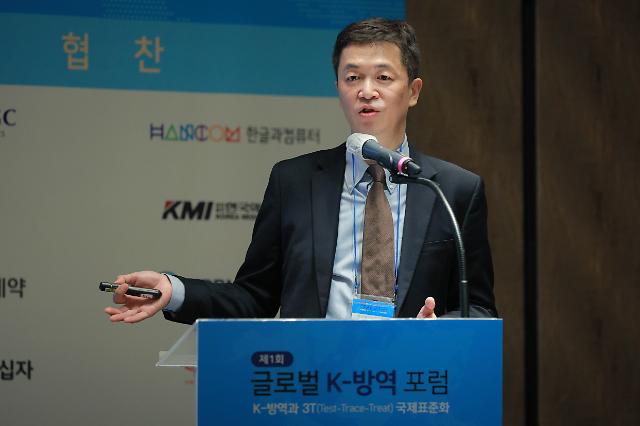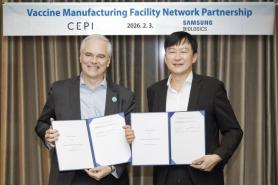
[Photo by Yoo Dae-gil ]
SEOUL -- A global COVID-19 pandemic gave South Korea a golden opportunity to turn its bio-health industry into a new growth engine, a senior state organization official said, calling for intensive investment to promote growth by taking advantage of "K-quarantine" technologies which have been benchmarked by many other countries.
"Now is the time to invest heavily in the bio-health sector," said Han Dong-woo, in charge of health industry innovation at the Korea Health Industry Development Institute (KHIDI), which supports the improvement of public health and enhances the international competitiveness of South Korea's health industry.
"The domestic bio-health industry responds effectively to the post-COVID-19 era, it can grow 12 percent annually by 2030," Han said in a confident voice during his speech at a forum hosted by Aju Business Daily on October 6. He proposed a strategy to put "K-quarantine" at the forefront, which is considered an excellent system for epidemic prevention and promote growth through intensive investment.
K-quarantine refers to various anti-epidemic technologies developed by South Korea to combat COVID-19, such as diagnostic kits and a walk-thru diagnostic system introduced for the quick screening of patients infected with a novel coronavirus. KHIDI data showed that exports of South Korea's medical and health-related products including biosimilars, diagnostic kits and disinfectants rose 26.7 percent on-year to $9.6 billion in the first half of this year.
"The domestic health industry is only 2.3 percent of GDP, but it is expected to account for 20.9 percent by 2030," Han said, adding the post-COVID-19 era is changing the paradigm from treatment to prevention, with changes being brought about by new technologies such as artificial intelligence, big data, wearables and precision medicine.
South Korea should expand exports of bio-health products when the level of its global recognition was raised by K-quarantine, Han said, insisting that the domestic bio-health industry should spare no time to invest in research, develop new technologies and establish policy governance. "It is important to develop new technologies and train talented people to secure growth engines."
Copyright ⓒ Aju Press All rights reserved.




